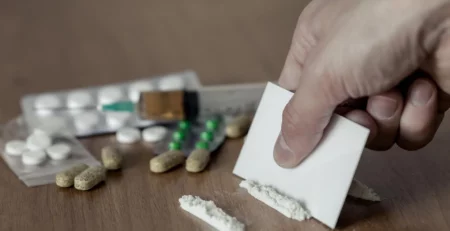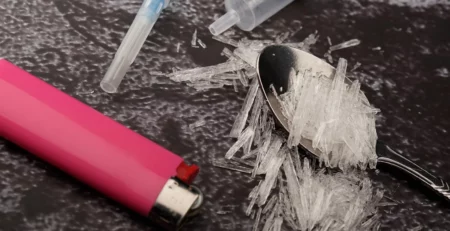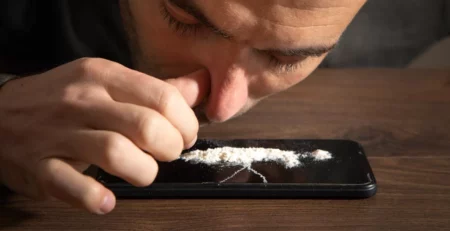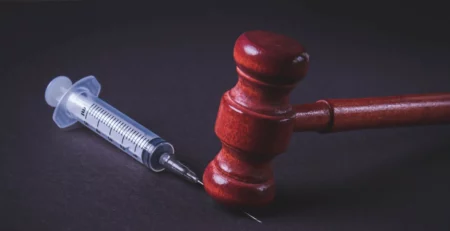Does Going to Rehab Go On Your Record?
All You Need to Know About Your Privacy When Going to Rehab
A common question many people have when considering going to rehab is: does going to rehab go on your record? The short answer is no, if we are talking about public records, it does not. Like the rest of your medical records, there are confidentiality laws that protect your privacy.
As this blog will break down, there are elements of attending treatment that require privacy and confidentiality, and you should have an expectation of discretion in regards to nearly all aspects of going to detox or rehab.
We’ll delve into why, as well as detail the instances in which treatment providers are required to share information, so keep reading to learn all the details.
Addiction Treatment is a Medical Treatment and Should Be Treated as Such

Addiction treatment is a medical service, and healthcare providers have to follow laws about drug abuse patient records being confidential. An exception is specific law enforcement investigations in which a judge subpoenas the medical records.
There are a few other cases when personal health information can be given without your consent such as if you are involved in a crime such as child abuse.
Short of criminality, legal protections prevent addiction recovery centers from going on your permanent record. Rehabilitation facilities will not share information without patient consent.
Substance abuse confidentiality regulations treat drug abuse patient records the same as any other protected health information. Potential employers, landlords, and even loved ones cannot access medical records without your explicit consent.
Getting sober and coming to treatment is a big step and can cause immense anxiety. You should be able to focus on getting better without worrying about people finding out that you went to a rehab program.
Icarus Behavioral Health’s Take on Confidentiality
Icarus Behavioral Health follows patient confidentiality regulations to the fullest. Your medical records are protected health information, and while you are in their program you can focus on your recovery journey.
Get Effective Detox and Rehab Options at Icarus
My Experience with Treatment Confidentiality
When I was considering going to rehab, I was concerned I would be judged by my co-workers and associates if they found out about it.
I wasn’t aware that my rehab records were protected by law and that safeguarding medical records is a responsibility treatment providers take very seriously. Finding out the severity of doctor-patient confidentiality regarding rehab programs, I felt less nervous about attending rehab.
My Experience at Icarus
The rehabilitation process was much less intimidating knowing that Icarus Behavioral Health was protecting patient privacy, and that gave me the freedom to focus on overcoming addiction.
I have since completed rehabilitation and am living a life of sobriety. My drug addiction has been arrested and everyone involved has kept my treatment confidential.
My gratitude goes out to the HIPAA privacy rules and Icarus abiding by those rules entirely.
Circumstances in Which Confidentiality Must Be Broken

According to the Health and Human Services website, new HIPAA regulations protect the records of individuals who seek any sort of addiction-related support, such as education, treatment, and other intervention services. This includes any sort of diagnosis or prognosis made, as well as their identity.
These rules protect patient privacy specifically in the realm of substance abuse treatment. They were enacted because people were scared of the stigma they would receive if they went to treatment and people found out.
The updated HIPAA laws list specific instances in which confidentiality can be broken. The Health and Human Services website also states, “Covered entities may use and disclose protected health information without individual authorization as required by law.”
Exceptions to HIPAA Laws
The exceptions required by law fall into a few different categories. Court orders like subpoenas and warrants are the most prevalent. Another is if law enforcement is looking for a suspect in an active crime. Another is if there is an immediate threat of violence to someone.
Child abuse and elder abuse can also be grounds for a healthcare provider to break HIPAA rules.
If one of these things occurs, then HIPAA privacy rules can be broken.
Get Accredited Treatment Programs at Icarus – Call Now!
What are HIPAA Privacy Rules?
HIPPA stands for Health Insurance Portability and Accountability Act of 1996. Health insurance portability and accountability protect people from discrimination from insurance companies. This prevents them from discriminating based on the health status of individuals.
It also gives patients the right to control how their health information is used.
According to the CDC, “The Privacy Rule standards address the use and disclosure of individuals’ protected health information (PHI) by entities subject to the rule.”
Any rehab program is going to be an entity that is subject to the rule, making the HIPAA laws directly applicable to the concern you have about it going on your record.
Background Checks do not Include Medical Records
Legally, rehab facilities can not show up on a background check and addiction treatment medical records will not either. Substance abuse treatment is a medical issue, and rehab facilities will not disclose patient information without the proper legal proceedings deeming it necessary.
Safeguarding your sensitive health information whether in court-ordered rehab facilities or rehabilitation facilities you sign up for on your own is a big responsibility that all rehabilitation centers take very seriously.
My experience with HIPAA laws has been positive, and I am happy to say that I have never been questioned by an employer, or anyone else, about having gone to any rehab facilities. My addiction treatment was private and will remain private.
If you have any concerns about your medical records for substance abuse being made public, you can call Icarus Nevada and ask them specific questions regarding the Health Insurance Portability and Accountability Act and anything else. Seeking treatment has enough stress involved; don’t let your fear of privacy hinder your recovery.
Ending the Stigma: Addiction Recovery is Nothing to be Ashamed Of

Addiction treatment should be seen in the same light as any other medical treatment. We as a society do not look down upon a person receiving care for any other ailment. No one shuns cancer patients getting chemotherapy or patients with renal failure getting dialysis.
Addiction treatment is no different than chemotherapy or dialysis.
Just as we have campaigned to bring awareness to mental health through agencies like the Substance Abuse and Mental Health Services Administration (SAMHSA), addiction and alcohol treatment providers need to organize campaigns to end the stigma on recovery treatment.
Viewing Addiction Treatment in a Positive Light
Drug and alcohol rehab offers people a better way of life. There is no downside to seeking treatment. The fear of judgment has cost people their lives and this needs to change.
Almost everyone either knows someone or loves someone with a substance use disorder. Family members of people with a substance use disorder have historically changed their preconceived negative ideas when they find out it is their brother, sister, mom, or dad who is struggling and seeking addiction treatment.
Federal regulations already protect your privacy in these situations. I hope that one day we won’t need to be ashamed of getting treatment for something, regardless of how we got to that point.
Medical Leave Act, Confidentiality Protections by Law
If you are currently employed and find yourself struggling with a substance use disorder, going to treatment is not something you have to disclose to anyone at your job. Employment laws protect you in this situation.
The only thing you need to ask for is medical leave. They cannot do anything to retaliate against you for going on medical leave.
The federal regulations state, “FMLA also prohibits employers from retaliating against workers who request FMLA leave.” This means that even if your employer found out why you took time off, they could not punish you for going to rehab.
Drug rehab, medical detox, and alcohol rehab centers are all protected by these regulations just as any other medical procedure or treatment would be.
My Experience Taking Medical Leave
I have experience with this exact situation. I was working at a job and found myself spiraling into addiction. I knew that I needed addiction treatment.
I ended up contacting different addiction treatment providers and organized an intake date with Icarus Behavioral Health in Nevada.
I returned to work after four weeks in inpatient treatment, and I am so thankful that I was able to take that time to heal.
I implore anyone struggling not to wait any longer to go get yourself help. Life has become so much better for me, and Icarus can help you get there too.
Getting Sober Should Be Celebrated

I know that anyone who is an actual friend is happy that I have gotten sober. I have come to the point where I am not concerned with what people think of me. Of course, I want my privacy respected and to be able to find new employment without being judged for my medical records, but in my personal life, I don’t particularly care.
I’ve realized that the judgmental people who care that I went to a treatment program don’t care about me. They are people whose opinions do not matter to me anymore.
My friends and family have supported me through those tough times and are the only people I care to listen to about this topic.
My Legal Protections While in Treatment
I am grateful there are protections for me. I was able to take time off to go to Icarus and not have to worry about losing my job. I’m happy that my treatment didn’t end up going on my permanent record of employment history.
My recovery journey is one that I do not particularly hide anymore. I wear it as a sort of badge of honor and to give others hope that they, too, can recover.
My life is immensely better. If you or someone you know is suffering from active addiction please reach out and get help. They can provide you with the same resources I used to save my life. They can guide your next move toward becoming the person you want to be.
Up To 100% of Rehab Costs Covered By Insurance – Call Now!
Call Icarus in Nevada to get Confidential Help Today
If you or one of your family members is suffering, please help them with finding a drug rehab. There is nothing to be ashamed of when seeking treatment. Put their fears to rest by knowing that rehab records and all other medical information will not show up on a background check.
Reach out to Icarus Behavioral Health in Las Vegas for any other rehab questions. Their treatment programs will help you with reasonable accommodations to ensure they are safeguarding your information. Give them a call today, I know its a call I am glad I made!











